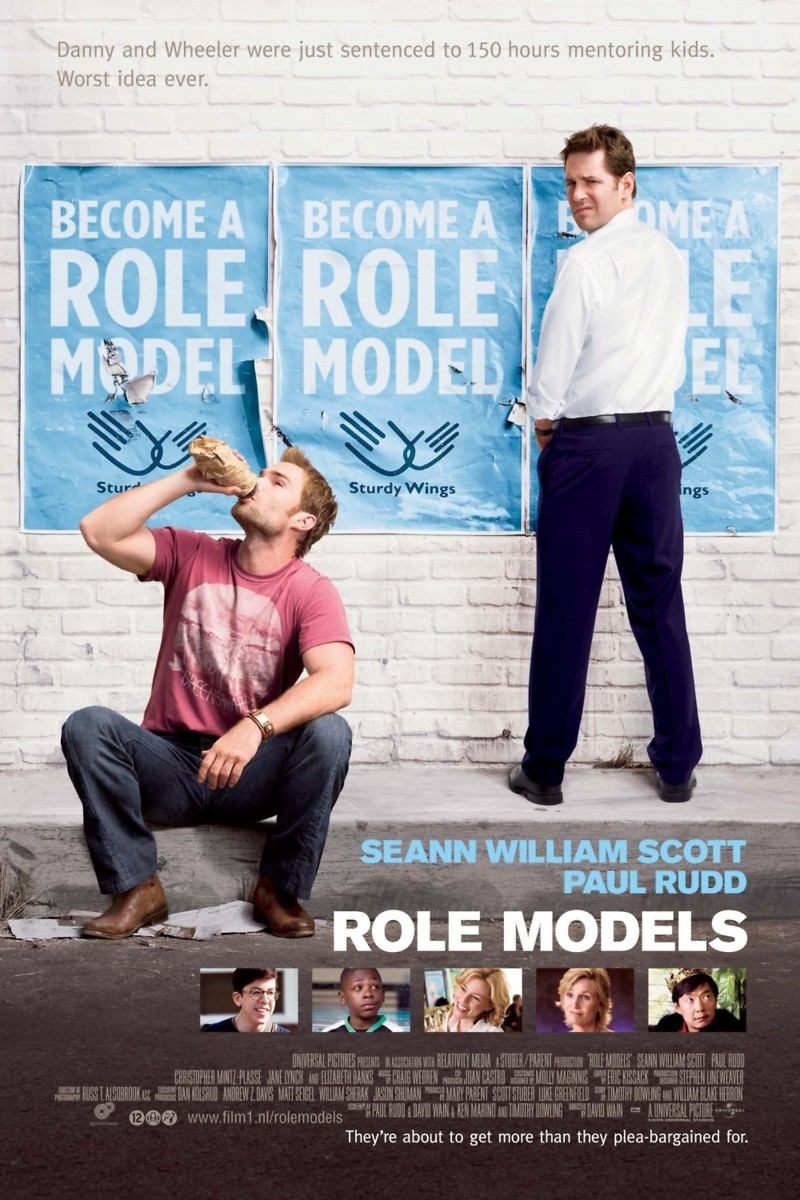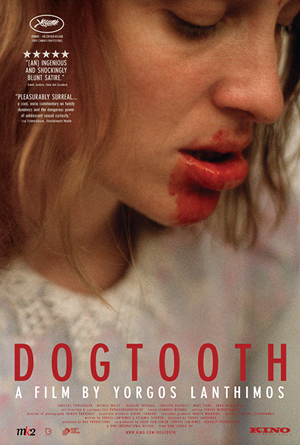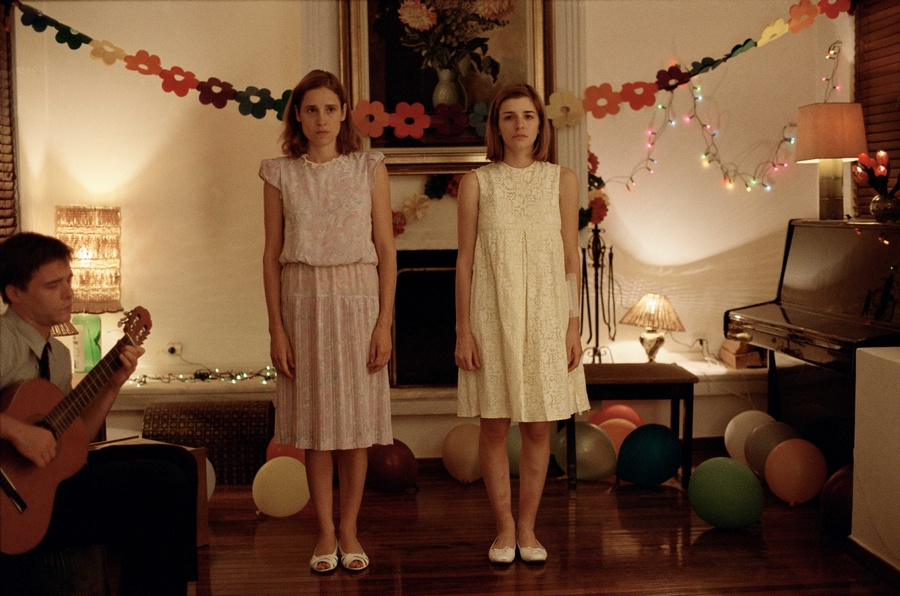Source Code (2011)
– Mark it 6.
After Duncan Jones burst onto the sci-fi scene in 2008 (the excellent Moon), he got the chance to work on a larger scale with last year’s Source Code. Jake Gyllenhaal is surprisingly effecting in the action star lead role as Colter Stevens, an Army veteran who has become unknowingly involved in a new secret military program, the Source Code. Using some fuzzy science, Colter is able to repeatedly relive the last 8 minutes on a Chicago commuter train that was blown up, killing everyone. As Colter repeats his mission, his confusion subsides and he can focus on finding the bomber’s identity within the “Source Code” before there is another attack in the real world. Source Code had my attention as its main character races against time to save Chicago, while uncovering the mysteries about his own past. Overall, this is a fun sci-fi flick that opens up the floor to some bigger and interesting question. Just don’t overthink the science part or your feelings may sour a bit.
After Duncan Jones burst onto the sci-fi scene in 2008 (the excellent Moon), he got the chance to work on a larger scale with last year’s Source Code. Jake Gyllenhaal is surprisingly effecting in the action star lead role as Colter Stevens, an Army veteran who has become unknowingly involved in a new secret military program, the Source Code. Using some fuzzy science, Colter is able to repeatedly relive the last 8 minutes on a Chicago commuter train that was blown up, killing everyone. As Colter repeats his mission, his confusion subsides and he can focus on finding the bomber’s identity within the “Source Code” before there is another attack in the real world. Source Code had my attention as its main character races against time to save Chicago, while uncovering the mysteries about his own past. Overall, this is a fun sci-fi flick that opens up the floor to some bigger and interesting question. Just don’t overthink the science part or your feelings may sour a bit.
Watching Todd Field’s fantastic In the Bedroom, it quickly becomes clear that grief can be one of our
most powerful emotions. When the grief
felt is especially intense, it can change people irrevocably. The grief over a tremendous loss tests the
ideal portrait of a successful marriage between Matt and Ruth Fowler (Tom Wilkinson
and Sissy Spacek). We can only watch this
pain tear apart their lives. While
Wilkinson and Spacek steal every scene (Wilkinson especially), the film is
filled with excellent performances from top to bottom. Marisa Tomei will break your heart as the
woman caught in the crossfire of a tragedy.
In the confused anger felt by others, she receives unjust blame for a
tragedy that is as painful to her as anyone.
As its darkness increases, In the
Bedroom will not leave you feeling very happy, but it will stick with you
for a long while. You are left
reflecting on all that you do have, and can only hope that your strength to
deal with crushing grief will never have to be tested.
The Myth of the American Sleepover (2010) – Mark it 6.
The Myth of the American Sleepover (2010) – Mark it 6.
In the mold of a tamed down Dazed and Confused, but not pinpointed to a specific period of
time, David Robert Mitchell’s visually appealing, on a small scale, film
follows a few groups of teenagers on the last night of summer vacation in a
small Michigan town. Some are looking to
reconnect with their past, looking to make favorable first impressions, looking
to take risks and leave childhood behind, or just looking to have fun with
their friends (of both the clean & innocent and drugs & alcohol variety). Among its many
great performances by unknown actors, I especially liked Claire Sloma, in what
best resembles the film’s “lead” role as Maggie, a punky soon-to-be freshman
who’s wavering between two eras of her life and not sure where she belongs. Not knowing where you belong is a common theme
to the teens in The Myth of the American Sleepover,
which is relatable to all who’ve made it through those years and makes the film
quite enjoyable.
Steve Coogan, a terribly underrated talent, stars Tony
Wilson, our guide through an overlooked, but fascinating, era in music. Michael Winterbottom’s 24 Hour Party People’s fun and faced-paced film has Tony tell us
the story, sometimes directly into the camera, of Manchester’s music scene,
from the rise of punk in 1976 to fall acid rock in 1992, with the birth of New
Wave and the DJ-driven rave culture in between.
Tony played a major role in these movements as a TV personality, record
label executive, venue owner, and close personal friend of the talent. He an interesting person living in an
interesting time, surrounded by great musicians; mostly focusing on Joy
Division (who I love), New Order (who I know little of, beyond “Blue Monday”),
and Happy Mondays (who I need to check out thoroughly). Winterbottom and Coogan show their love for Manchester
and this music with every frame, and it's a lot of fun to watch.
Groundhog Day (1993)
– Mark it 7.
There are some “classics” that seem to have slipped between
my cracks; which I think Groundhog Day could
be considered. The wait was worth
it. The eternally cool Bill Murray is
hilarious as the cynical weatherman reliving his least favorite day over and
over again (way more times than I expected), the day Puxsutawney Phil looks for
his shadow to forecast the winter. Groundhog Day is a simply a great comedy
with a fresh story, endearing characters, and good jokes. Every variation of the meetings with Ned
Ryerson or the monologues about the “importance” of the groundhog is funny, no
matter how many times Murray must do it.
Each new day feel fresh, which is quite the feat. The film even has the guts to get deep as
Murray reflects on his existence and realizes how to become a good person,
which is conveniently the trick to breaking his spell. Also, Andie MacDowell is pretty adorable as
Murray’s producer (and object of his affection).
Role Models (2008)
– Mark it 6.
Anything from David Wain and company have been involved in
some of my favorite comedy (MTV’s The
State, Wet Hot American Summer),
so their work always catches my interest. Though I must admit that these
expectations left me a little disappointed in Role Models. Paul Rudd and Sean William Scott play two
losers who avoid jail time by becoming “Big Brothers” to area youth. The scenes involving Rudd and Scott’s two
unlikable jerks were weaker than expected, but the laughs pick up considerable
when the “Little Brothers” get involved.
With every scene involving Augie’s (Christopher Mints-Plasse, or
“McLovin’ to most of the world) live-action role-playing nerdy fantasy world
and Ronnie’s (Bobb’e J. Thompson) pint size master of vulgarity, life gets
injected into the film. Role Models is nothing revelatory (like Wet Hot American Summer is), but there
are just enough laughs from beginning to end to make it worth your time.














